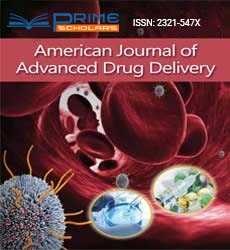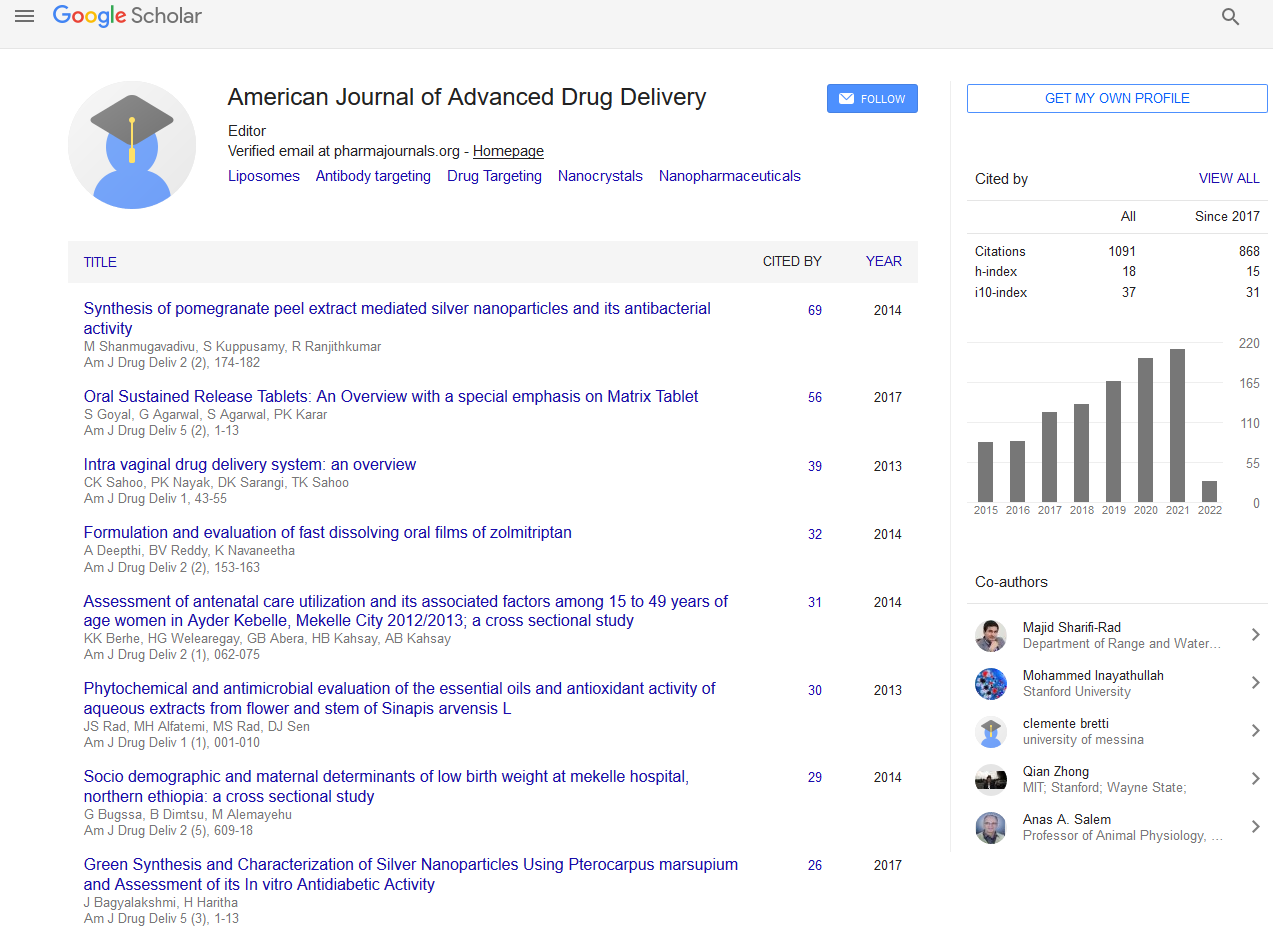Commentary Article - (2024) Volume 12, Issue 4
SIGNIFICANCE OF ANTIBODY TARGETING: A BRIEF STUDY
Jo Demeester*
Department of Chemical Engineering, University of Birmingham, UK
*Correspondence:
Jo Demeester,
Department of Chemical Engineering, University of Birmingham,
UK,
Email:
Received: 02-Dec-2024, Manuscript No. IPAAD-25-22421;
Editor assigned: 04-Dec-2024, Pre QC No. IPAAD-25-22421;
Reviewed: 18-Dec-2024, QC No. IPAAD-25-22421;
Revised: 23-Dec-2024, Manuscript No. IPAAD-25-22421;
Published:
30-Dec-2024, DOI: 110.36648/2321-547X.12.4.37
Description
Antibody targeting has emerged as a transformative approach in precision medicine, offering unparalleled specificity in diagnosing and treating various diseases. This strategy leverages the high affinity and specificity of antibodies to recognize and bind to target molecules, such as antigens expressed on the surface of diseased cells. By selectively interacting with these targets, antibody-based therapies minimize off-target effects, enhancing therapeutic efficacy and safety. This article delves into the principles, applications, challenges, and future directions of antibody targeting in modern healthcare. Antibodies are Y-shaped proteins produced by B-cells in response to foreign substances, or antigens, in the body. Their ability to recognize specific antigens with high precision makes them ideal candidates for therapeutic targeting. Monoclonal antibodies engineered to target a single antigen, form the cornerstone of antibody targeting. These antibodies are typically developed using hybridoma technology, phage display, or transgenic animal platforms, ensuring their specificity and safety. Advances in antibody engineering have further enhanced their functionality, leading to the development of antibody-drug conjugates bispecific antibodies, and fragmentbased antibody therapies. One of the most significant applications of antibody targeting is in oncology. Cancer cells often overexpress specific antigens, such as HER2 in breast cancer or CD20 in B-cell lymphomas. Monoclonal antibodies like trastuzumab and rituximab have revolutionized cancer treatment by selectively targeting these antigens, inhibiting tumor growth, and inducing immune-mediated cell death. ADCs, which combine monoclonal antibodies with cytotoxic drugs, have further improved cancer therapies by delivering potent chemotherapeutic agents directly to cancer cells while sparing healthy tissues. For instance, trastuzumab emtansine combines trastuzumab with a cytotoxic agent to provide targeted therapy for HER2-positive breast cancer patients. Beyond oncology, antibody targeting plays a pivotal role in treating autoimmune and inflammatory diseases. Therapeutic antibodies like adalimumab and infliximab target tumor necrosis factor-alpha (TNF-α), a pro-inflammatory cytokine implicated in rheumatoid arthritis, Crohn’s disease, and psoriasis. By neutralizing TNF-α, these antibodies alleviate inflammation and improve patient outcomes. Similarly, antibodies targeting interleukins and their receptors have shown promise in managing conditions like asthma and atopic dermatitis.
Antibody targeting has also made significant strides in infectious disease management. Neutralizing antibodies are being developed to combat viral infections such as HIV, influenza, and SARS-CoV-2. These antibodies bind to viral proteins, preventing their entry into host cells and marking them for destruction by the immune system. For example, monoclonal antibodies have been authorized for emergency use in treating COVID-19, demonstrating their potential in managing emerging infectious diseases.
Conclusion
Antibody targeting represents a cornerstone of precision
medicine, offering tailored and effective solutions for a wide range
of diseases. While challenges remain, ongoing advancements
in biotechnology and interdisciplinary collaboration are set to
overcome these hurdles, ensuring that antibody-based therapies
continue to transform patient care. By harnessing the power
of antibodies, we are unlocking new possibilities in disease
management and paving the way for a future where treatments
are as unique as the patients they serve.
Acknowledgement
None.
Conflict Of Interest
The authorâ??s declared that they have no conflict of interest.
Citation: Demeester J (2024) Significance of Antibody Targeting: A Brief Study. Am J Adv Drug Deliv. 12:37.
Copyright: © 2024 Demeester J. This is an open-access article distributed under the terms of the Creative Commons Attribution
License, which permits unrestricted use, distribution, and reproduction in any medium, provided the original author and source
are credited

